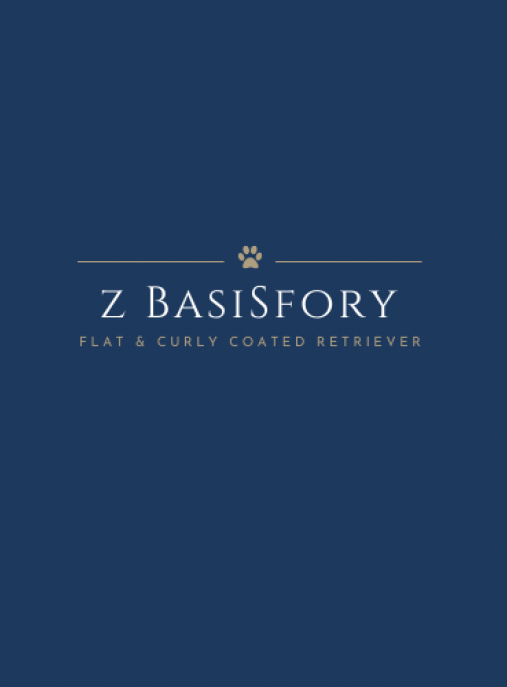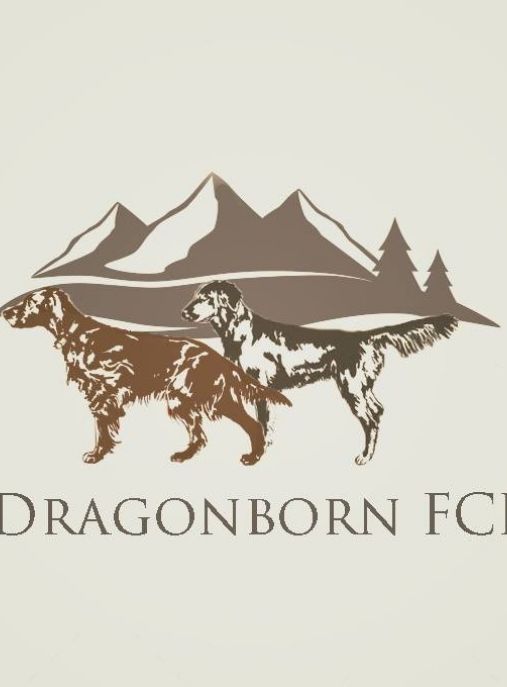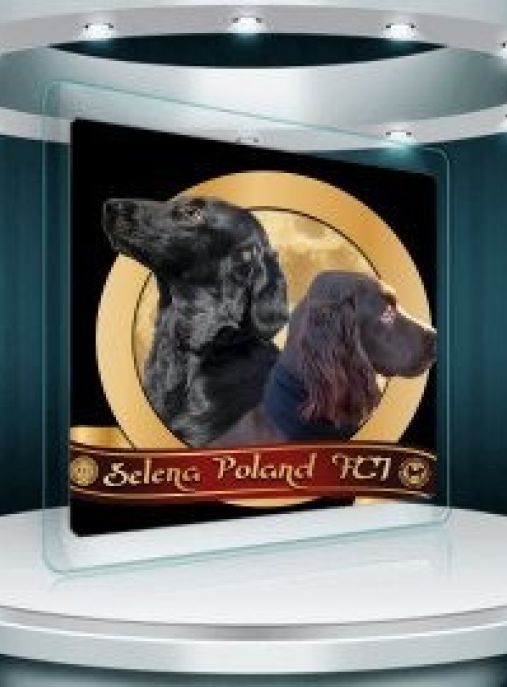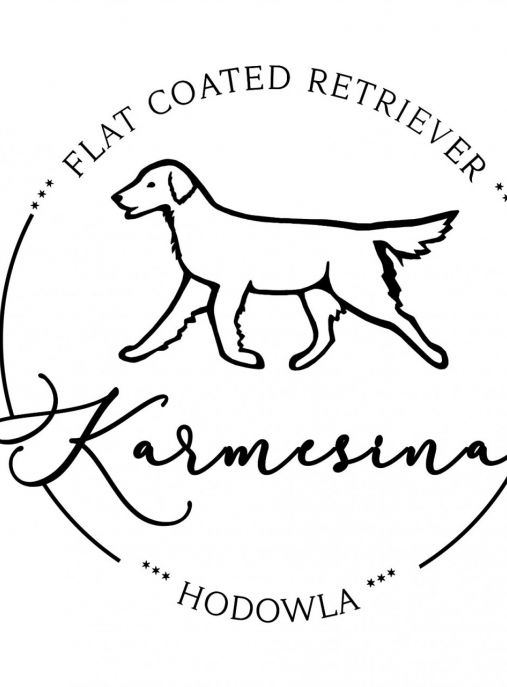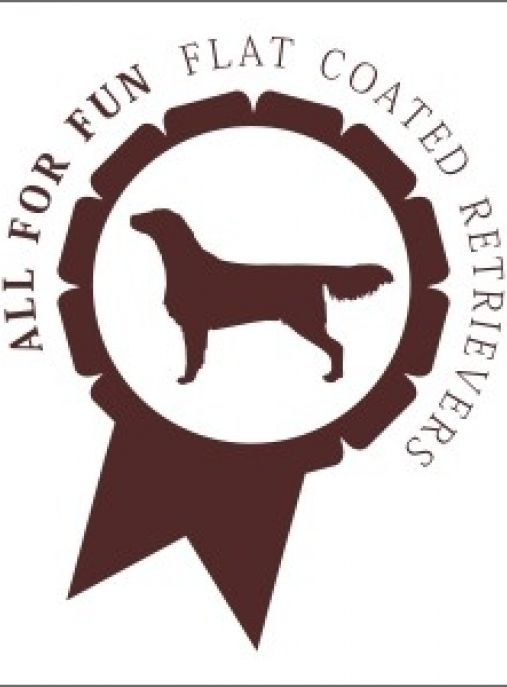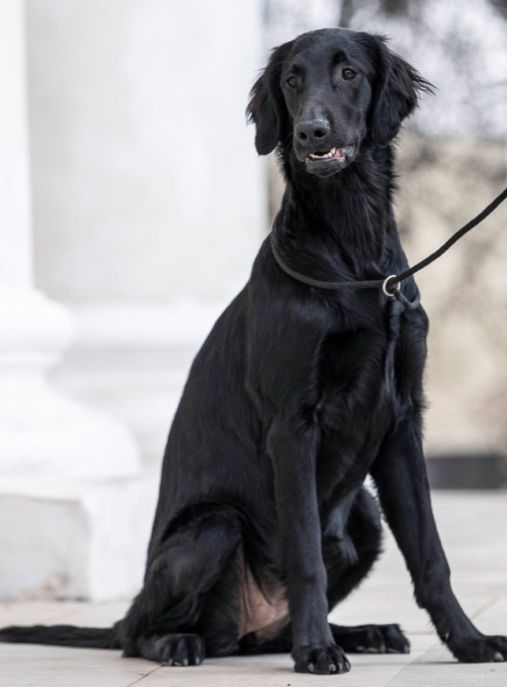The Flat Coated Retriever is a versatile and intelligent dog breed known for its friendly and outgoing nature. With its distinctive glossy black coat and elegant appearance, this breed is often compared to the Labrador Retriever and Golden Retriever. However, the Flat Coated Retriever has its own unique characteristics that make it stand out among other retriever breeds.
Originating in England during the mid-19th century, the Flat Coated Retriever was developed by crossing various breeds, including the Newfoundland, Labrador Retriever, and possibly the Collie. The breed was primarily created for retrieving game during hunting expeditions, particularly waterfowl. Their webbed feet and water-resistant coat made them excellent swimmers, allowing them to retrieve game from both land and water.
According to the FCI (Fédération Cynologique Internationale) typology, the Flat Coated Retriever belongs to Group 8: Retrievers, Flushing Dogs, and Water Dogs. This group includes breeds that were originally bred for retrieving game and flushing out birds. The Flat Coated Retriever is classified under Section 1: Retrievers, and its breed standard is maintained by various kennel clubs worldwide.
Known for their friendly and sociable nature, Flat Coated Retrievers make excellent family pets and companions. They are highly affectionate and get along well with children and other animals. Their intelligence and eagerness to please make them easy to train, although they may sometimes display a stubborn streak. They thrive on human companionship and require plenty of mental and physical stimulation to prevent boredom.
In terms of physical characteristics, the Flat Coated Retriever is a medium to large-sized breed. Males typically stand between 23 to 24.5 inches (58 to 62 cm) at the shoulder, while females are slightly smaller, ranging from 22 to 23.5 inches (56 to 60 cm). The breed's weight ranges from 60 to 80 pounds (27 to 36 kg). Their athletic build and strong muscles allow them to excel in various activities, including agility, obedience, and field trials.
The most distinctive feature of the Flat Coated Retriever is its dense and shiny coat. The breed's coat is thick and weather-resistant, providing protection from harsh elements. It is typically solid black, although occasionally liver (chocolate) colored individuals can be found. The coat is long and feathered, with a moderate amount of grooming required to keep it in good condition. Regular brushing and occasional trimming are necessary to prevent matting and maintain the coat's natural shine.
In terms of health, the Flat Coated Retriever is generally a robust breed with a life expectancy of around 10 to 12 years. However, like many large breeds, they are prone to certain health issues, including hip dysplasia, cancer, and progressive retinal atrophy (PRA). Regular veterinary check-ups, a balanced diet, and regular exercise are essential for maintaining their overall well-being.
Flat Coated Retrievers are known for their playful and energetic nature. They require daily exercise to keep them physically and mentally stimulated. Long walks, swimming sessions, and interactive playtime are all excellent ways to meet their exercise needs. They also excel in various dog sports, including obedience, agility, and tracking.
In addition to their hunting and retrieving abilities, Flat Coated Retrievers have also proven themselves in search and rescue work, therapy dog programs, and as assistance dogs for individuals with disabilities. Their friendly and gentle nature, combined with their intelligence and trainability, make them well-suited for these roles.
In conclusion, the Flat Coated Retriever is a versatile and loving breed that excels in various activities. With their friendly and outgoing nature, they make excellent family pets and companions. Their glossy black coat, athletic build, and intelligence make them a striking and highly trainable breed. Whether as a hunting partner, a therapy dog, or a beloved family pet, the Flat Coated Retriever brings joy and companionship to those fortunate enough to share their lives with them.
The Flat Coated Retriever is a breed known for its friendly and outgoing nature. These dogs are full of energy, intelligence, and enthusiasm, making them a popular choice for families and active individuals. With their charming personality and striking appearance, Flat Coated Retrievers are truly a joy to be around.
One of the defining characteristics of Flat Coated Retrievers is their friendly and affectionate nature. They are known to be excellent family dogs, getting along well with children and other pets. Their love for human companionship is evident in their constant desire to be by their owner's side. Whether it's cuddling on the couch or joining in on outdoor activities, these dogs thrive on being a part of the family.
Flat Coated Retrievers are also known for their intelligence and eagerness to please. This makes them highly trainable and adaptable to various environments. They excel in obedience training and are quick learners, making them suitable for various dog sports and activities. However, it is important to note that they can be sensitive to harsh training methods, so positive reinforcement techniques work best with this breed.
Due to their history as working retrievers, Flat Coated Retrievers have a natural instinct to retrieve and carry objects in their mouths. This characteristic can be seen in their playful nature, as they often enjoy games of fetch and love to carry toys around. Their high energy levels require regular exercise and mental stimulation to keep them happy and well-behaved. Daily walks, runs, or play sessions in a secure area are essential to prevent boredom and destructive behaviors.
Socialization is crucial for Flat Coated Retrievers from an early age. Introducing them to various people, animals, and environments helps them develop into well-rounded dogs. They are generally friendly towards strangers, but early socialization can help prevent any potential shyness or fearfulness.
When it comes to grooming, Flat Coated Retrievers have a beautiful, dense coat that requires regular maintenance. Their coat is water-resistant, which makes them excellent swimmers. Weekly brushing is necessary to prevent matting and keep their coat healthy and shiny. Additionally, they may require occasional trimming of their feathering and regular ear cleaning to prevent infections.
To raise a well-behaved Flat Coated Retriever, consistency and positive reinforcement are key. Early training and socialization are essential to ensure they grow into confident and obedient dogs. Providing them with mental and physical stimulation, along with plenty of love and attention, will help them thrive.
In conclusion, Flat Coated Retrievers are friendly, intelligent, and energetic dogs that make excellent family pets. Their loving nature, combined with their trainability and adaptability, makes them a popular choice for many dog lovers. With proper training, socialization, and care, these dogs will bring endless joy and companionship to their owners.
The Flat Coated Retriever is a beautiful and intelligent breed known for its friendly and outgoing nature. To ensure the health and happiness of your Flat Coated Retriever, it is important to provide them with proper care and attention. Here are some tips on how to care for dogs of this breed, including what to do and what not to do:
1. Exercise: Flat Coated Retrievers are energetic dogs that require regular exercise to keep them physically and mentally stimulated. Aim for at least an hour of exercise every day, which can include walks, runs, playtime, and swimming. Engaging in activities like retrieving games can also help satisfy their natural instincts.
2. Mental Stimulation: These intelligent dogs thrive on mental challenges. Provide them with puzzle toys, interactive games, and obedience training sessions to keep their minds sharp. Mental stimulation is crucial to prevent boredom and destructive behavior.
3. Grooming: Flat Coated Retrievers have a dense, water-resistant coat that requires regular grooming. Brush their coat at least twice a week to prevent matting and remove loose hair. Pay special attention to their feathering on the legs, tail, and ears. Regular bathing is necessary to keep their coat clean and healthy.
4. Dental Care: Like all dogs, dental hygiene is essential for Flat Coated Retrievers. Brush their teeth regularly using a dog-specific toothbrush and toothpaste. Dental chews and toys can also help maintain good oral health.
5. Nutrition: Provide your Flat Coated Retriever with a balanced and nutritious diet. Choose high-quality dog food that meets their specific needs, considering their age, size, and activity level. Avoid overfeeding to prevent obesity, which can lead to various health issues.
6. Socialization: Flat Coated Retrievers are social dogs that enjoy the company of humans and other animals. Early socialization is crucial to ensure they grow up to be well-rounded and friendly. Expose them to different environments, people, and animals from a young age to help them develop good social skills.
7. Regular Veterinary Check-ups: Schedule regular visits to the veterinarian for routine check-ups, vaccinations, and preventive care. Flat Coated Retrievers are generally healthy dogs, but regular examinations can help detect any potential health issues early on.
What NOT to do:
1. Neglect Exercise: Flat Coated Retrievers are an active breed, and lack of exercise can lead to behavioral problems and obesity. Avoid confining them to a small space for extended periods without proper exercise.
2. Isolation: These dogs thrive on human companionship and can suffer from separation anxiety if left alone for long periods. Avoid leaving them alone for extended periods and provide them with mental stimulation and company.
3. Harsh Training Methods: Flat Coated Retrievers respond best to positive reinforcement training methods. Avoid using harsh or punitive techniques as it can damage their trust and lead to behavioral issues.
4. Overfeeding: Obesity is a common problem in Flat Coated Retrievers. Avoid overfeeding or giving excessive treats, as it can lead to weight gain and related health issues.
5. Ignoring Grooming: Neglecting grooming can result in a matted and unhealthy coat. Regular brushing and grooming sessions are essential to maintain their coat's health and appearance.
By following these tips, you can provide your Flat Coated Retriever with the care they need to lead a happy and healthy life. Remember, each dog is unique, so adapt these guidelines to suit your individual pet's needs and consult with a veterinarian for personalized advice.
The Flat Coated Retriever, a majestic and versatile breed, is known for its striking and lustrous coat. The common color of these dogs is a rich and deep solid black, which exudes elegance and sophistication. This distinctive coloration is one of the defining characteristics of the Flat Coated Retriever, setting it apart from other retriever breeds.
The black coat of the Flat Coated Retriever is dense, glossy, and sleek, reflecting light with a stunning sheen. It is a testament to their regal nature and adds to their overall allure. The coat is uniformly black throughout, with no markings or variations in color. This solid black hue encompasses the entire body, including the head, ears, back, tail, and legs.
The texture of the Flat Coated Retriever's coat is another remarkable feature. It is thick and weather-resistant, providing excellent protection against the elements. This dense coat allows these dogs to work in various terrains and climates, making them exceptional retrievers and water dogs.
The black color of the Flat Coated Retriever's coat is not only visually striking but also serves a practical purpose. It helps them blend seamlessly into their surroundings, making them excellent hunting companions. This camouflage-like quality allows them to approach their prey with stealth and agility, ensuring a successful retrieval.
The black coat of the Flat Coated Retriever requires regular grooming to maintain its luster and health. Brushing their coat at least once a week helps remove loose hair and prevents matting. Additionally, occasional baths and trimming of the nails are essential for their overall well-being.
While the black coat is the most common color for Flat Coated Retrievers, it is worth noting that there can be some minor variations within the breed. Occasionally, a small white patch may be present on the chest or toes, but this is considered acceptable within breed standards. However, any other color variations or markings are considered undesirable and may indicate mixed breeding.
In conclusion, the common color of Flat Coated Retriever dogs is a striking and solid black. This coat color, combined with their regal appearance and exceptional working abilities, makes them a truly remarkable breed. Whether in the field, the show ring, or as a beloved family pet, the black coat of the Flat Coated Retriever is a testament to their beauty, versatility, and unwavering loyalty.
The Flat Coated Retriever is a beautiful and energetic breed known for its friendly and outgoing nature. These dogs are generally healthy and have a life expectancy of around 10 to 12 years. However, like any other breed, they are prone to certain health issues that owners should be aware of in order to provide the best care possible.
One of the most common health concerns in Flat Coated Retrievers is cancer. This breed has a higher risk of developing various types of cancer, including hemangiosarcoma, osteosarcoma, and mast cell tumors. Regular veterinary check-ups and early detection are crucial in managing these conditions. It is recommended to perform routine screenings and keep an eye out for any unusual lumps, bumps, or changes in behavior.
Hip dysplasia is another health issue that affects Flat Coated Retrievers. This condition occurs when the hip joint doesn't develop properly, leading to pain, lameness, and arthritis. Responsible breeders will perform hip evaluations on their breeding dogs to minimize the risk of passing on this condition. Regular exercise, a balanced diet, and maintaining a healthy weight can also help reduce the impact of hip dysplasia.
Progressive Retinal Atrophy (PRA) is an inherited eye disease that affects the retina, leading to vision loss and eventual blindness. Flat Coated Retrievers can be genetically tested for PRA, and responsible breeders will ensure that their breeding dogs are clear of this condition. Regular eye examinations by a veterinary ophthalmologist are essential to monitor the health of the dog's eyes and detect any signs of PRA early on.
Another common health concern in this breed is hypothyroidism. This condition occurs when the thyroid gland doesn't produce enough hormones, resulting in weight gain, lethargy, and skin issues. Regular blood tests can help diagnose and manage hypothyroidism, and medication can be prescribed to regulate hormone levels.
To maintain the overall health of a Flat Coated Retriever, proper care and attention are necessary. Regular exercise is crucial to keep them physically and mentally stimulated. These dogs have high energy levels and enjoy activities such as long walks, swimming, and playing fetch. Mental stimulation through puzzle toys and training sessions is also important to prevent boredom.
A nutritious and balanced diet is essential for the well-being of Flat Coated Retrievers. High-quality dog food that meets their specific nutritional needs should be provided. Avoid overfeeding and monitor their weight to prevent obesity, which can exacerbate certain health conditions.
Regular grooming is necessary to keep their coat healthy and free from mats. Brushing their coat a few times a week will help remove loose hair and prevent tangles. Additionally, regular dental care, including brushing their teeth and providing dental chews, can help maintain good oral hygiene and prevent dental diseases.
Lastly, regular veterinary check-ups are crucial for early detection and prevention of any potential health issues. Vaccinations, parasite prevention, and routine screenings should be part of their healthcare regimen.
In conclusion, while Flat Coated Retrievers are generally healthy dogs, they are prone to certain health conditions such as cancer, hip dysplasia, PRA, and hypothyroidism. Responsible breeding practices, regular veterinary check-ups, proper exercise, a balanced diet, and grooming are essential for maintaining their overall health and well-being. With proper care and attention, these beautiful dogs can lead happy and healthy lives.
The Flat Coated Retriever is a beautiful and energetic breed known for its friendly nature and intelligence. To ensure their overall health and well-being, it is crucial to provide them with a balanced and nutritious diet. Proper nutrition plays a vital role in maintaining their energy levels, promoting a healthy coat, and supporting their overall growth and development.
When it comes to feeding a Flat Coated Retriever, it is important to choose high-quality dog food that meets their specific nutritional needs. Look for a well-balanced diet that contains a good balance of proteins, fats, carbohydrates, vitamins, and minerals. Ideally, the first ingredient should be a high-quality source of animal protein, such as chicken, beef, or fish.
Protein is essential for muscle development and repair, so it should make up a significant portion of their diet. Aim for a minimum of 18-22% protein content in their food. Additionally, fats are an important energy source for Flat Coated Retrievers, so ensure that the food contains a moderate amount of healthy fats, such as omega-3 and omega-6 fatty acids.
Flat Coated Retrievers are an active breed, so they require a diet that provides them with sufficient calories to fuel their energy levels. However, it is important to monitor their weight and adjust their food intake accordingly to prevent obesity. Consult with your veterinarian to determine the appropriate daily calorie intake for your dog based on their age, weight, and activity level.
In addition to commercial dog food, you can also include fresh, whole foods in your Flat Coated Retriever's diet. These can include lean meats, such as chicken or turkey, as well as fruits and vegetables like carrots, apples, and green beans. These foods can provide additional nutrients and variety to their diet. However, it is important to avoid feeding them toxic foods such as chocolate, grapes, onions, and garlic, as these can be harmful to their health.
Proper hydration is also crucial for Flat Coated Retrievers. Always ensure that fresh, clean water is readily available for them throughout the day. Regularly check their water bowl to ensure it is clean and refill it as needed.
It is important to establish a feeding routine for your Flat Coated Retriever. Divide their daily food portion into two or three meals to prevent overeating and aid digestion. Avoid free-feeding or leaving food out all day, as this can lead to weight gain and unhealthy eating habits.
Lastly, regular exercise is essential for Flat Coated Retrievers to maintain a healthy weight and overall well-being. Along with a nutritious diet, ensure they get plenty of physical activity, such as daily walks, playtime, and mental stimulation.
In conclusion, providing a well-balanced and nutritious diet is crucial for the health and well-being of Flat Coated Retrievers. Choose high-quality dog food that meets their specific nutritional needs, including a good balance of proteins, fats, carbohydrates, vitamins, and minerals. Incorporate fresh, whole foods for added variety and nutrients. Avoid toxic foods and establish a feeding routine. With proper nutrition and regular exercise, your Flat Coated Retriever will thrive and enjoy a happy and healthy life.


